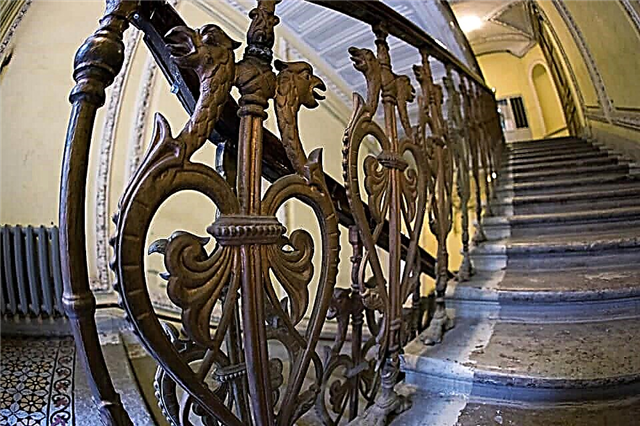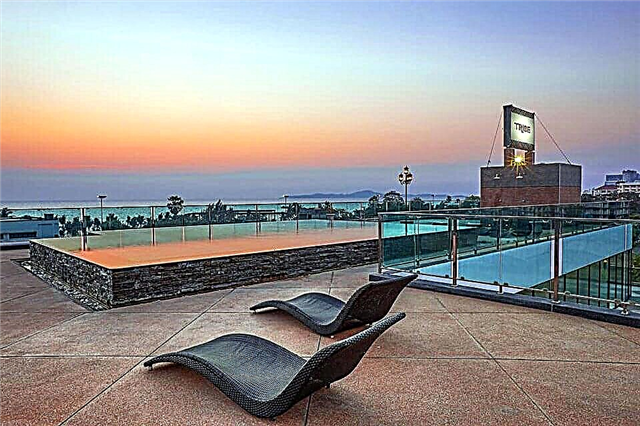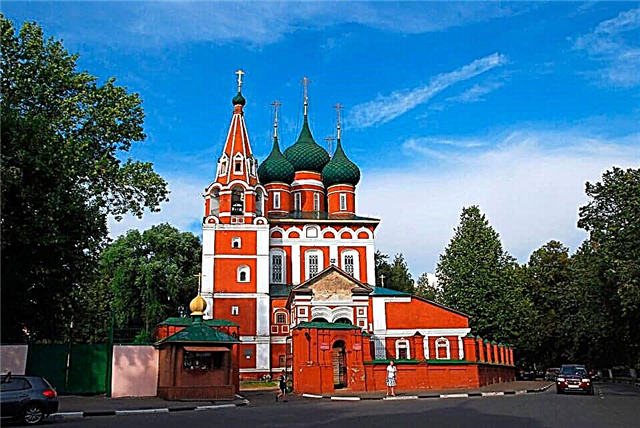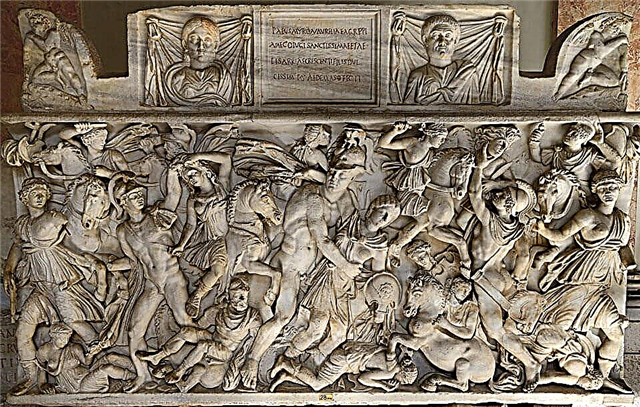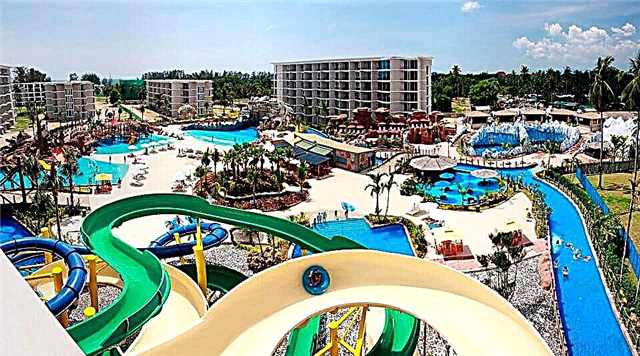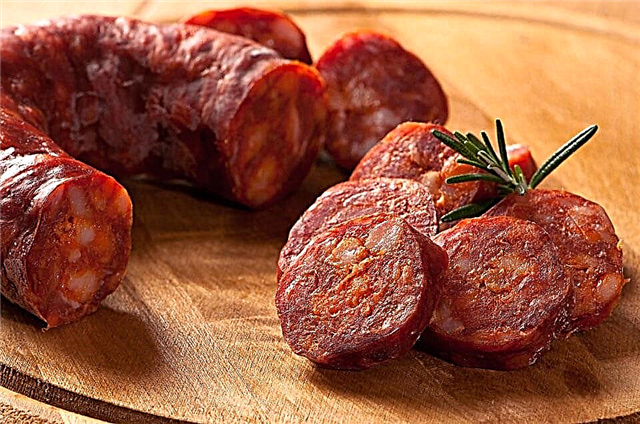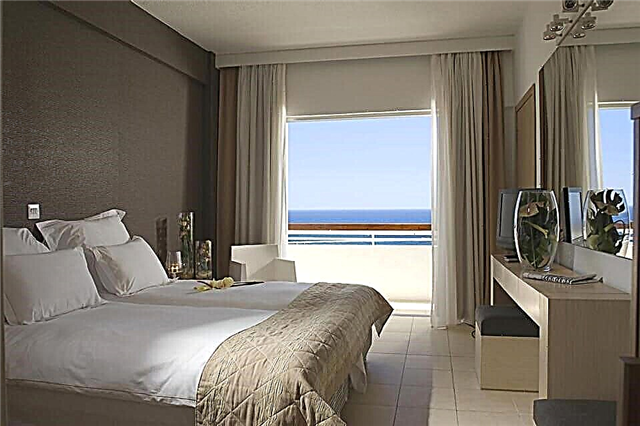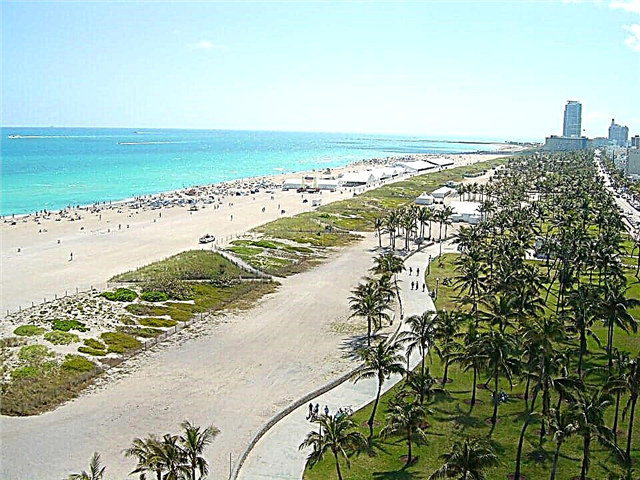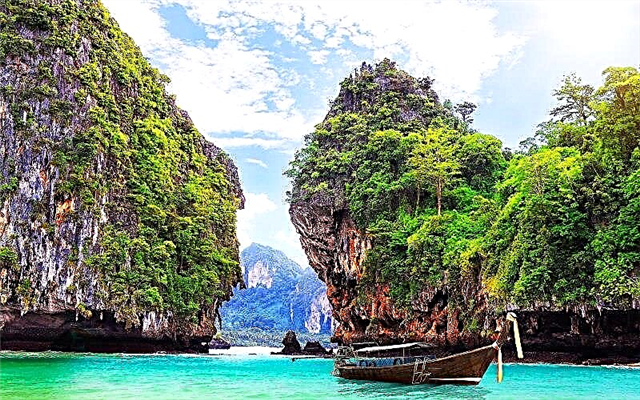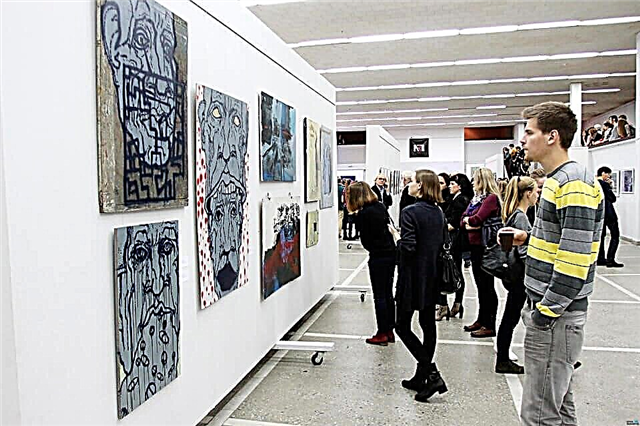Kaliningrad is heterogeneous and attractive precisely by this heterogeneity. There are districts with a distinct nostalgia for Soviet times, and there are streets that you expect to see more likely in some historical film about the burgher realities of the life of the last century. The museums of Kaliningrad clearly demonstrate this feature, allowing you to recognize the city in its various components: in the striking architecture of the Cathedral, in the sharpened lines of numerous forts, in the streets of old Khufen and similar quarters.
Friedland Gate Museum
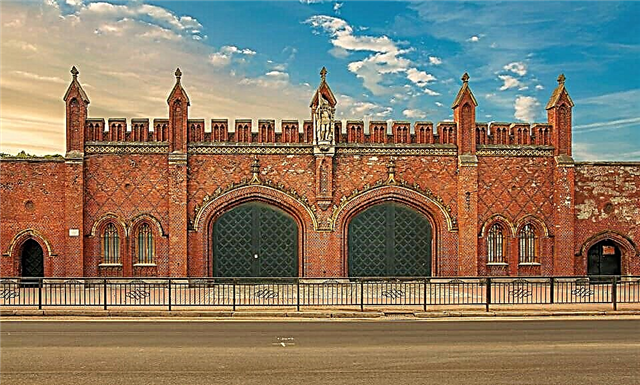
The museum owns the eponymous architectural monument of the late nineteenth century. Then the new fortress gates were conceived as part of the fortress walls, but gradually the walls began to be dismantled, and all roads were laid bypass. They simply stopped using the gate. The restoration of this architectural monument was carried out by the Germans, who at first initiated small excursion programs for those nostalgic for German culture.
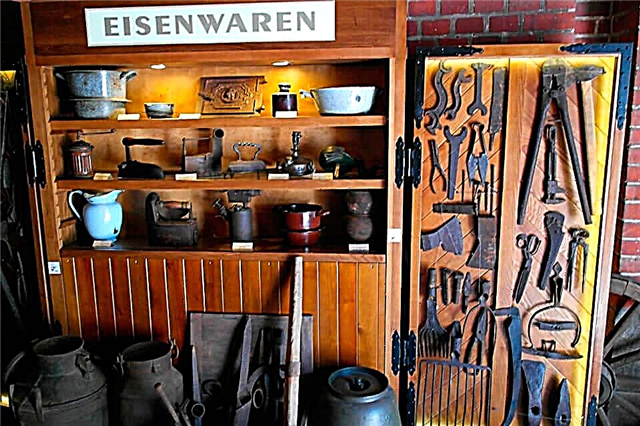
Today, the local excursion format is innovative in many ways. The most interesting part of the excursion is not acquaintance with the historical component of the life of the fortress and the gate, but a walk along the streets of the old city, which today is possible thanks to a combination of visual and sound effects. From September to April, the museum is open from 10:00 to 18:00, in other months - until 19:00. There are no days off. The ticket price includes not only a visit to the exhibition, but also the opportunity to be photographed in one of the medieval vestments.
Museum of the World Ocean
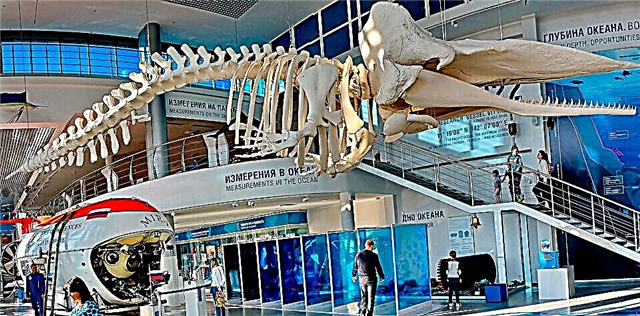
The museum is located on the embankment of Peter the Great. He works both in the direction of studying the nature of the world's oceans and on the problems of its history. Many of the exhibits are unique, such as a collection of clam shells or a collection of nineteenth century literature on the ocean. The pearl of the museum is undoubtedly the ship "Vityaz". A unique space communications ship, submarine and other marine vehicles are also open for guests. Visiting each object of the museum is paid separately. The most expensive is a visit to the "Depth" exposition in combination with an aquarium - 300 rubles without guided tours.
The opening hours of each facility are also different. Almost all of them are open to the public from 10:00 and close to tourists at 18:00. Check out the official website for full information.
Historical and Cultural Center "Ship Resurrection"
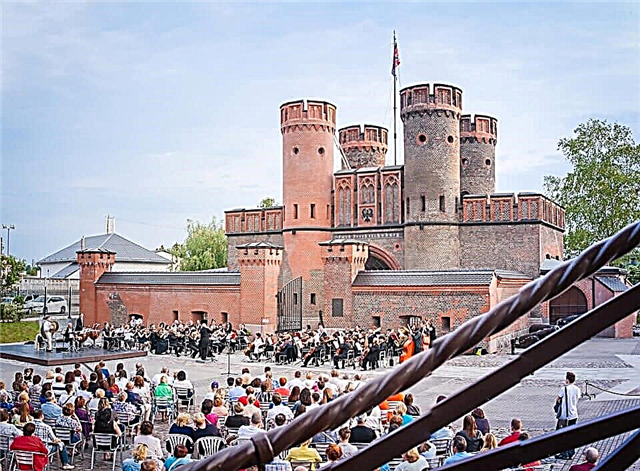
This historical and cultural center is located in the premises of the Friedrichsburg Gate. Here are collected exhibits that will shed light on the history of shipbuilding, as well as clearly demonstrate how the restoration of historical ships is going on today. You can not only immerse yourself in the purely theoretical aspect of this area, but also personally take part in the difficult task of restoration. It is noteworthy that various mass thematic events are regularly held on the territory of "Ship Sunday", which can be interesting to participate in.
The center is open to the public from 10:00 to 18:00. The days off are Monday and Tuesday.
Historical and Cultural Center "Great Embassy"
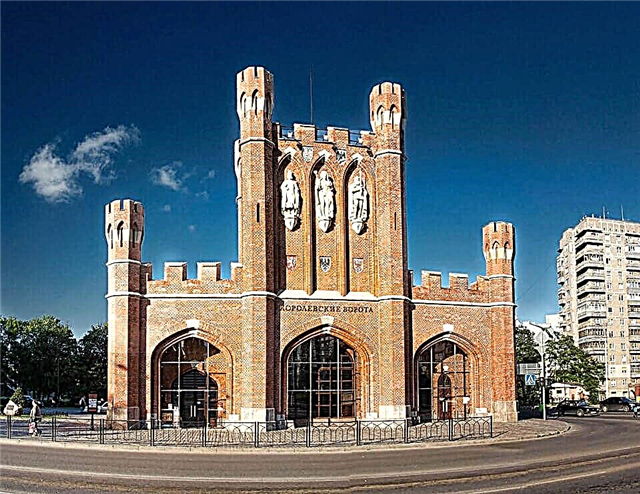
The exposition of the center took under its vaults the Royal Gate, a wonderful monument of fortification architecture of the nineteenth century. Frederick William IV, King of Prussia, took part in their laying. Once under their arches, kings drove into the city, but the Second World War almost destroyed them to the ground.
After the bombing, many statues were destroyed, and fragments of the walls were simply missing. The restoration of this monument has become the property of many nations. So, masters from Poland worked on the restoration of the facades, and the restoration of sculptures became possible only thanks to a successful Russian-German collaboration. As it is not difficult to guess, after the completion of the reconstruction work, materials related to the notorious journey of Peter the Great to Europe were posted here.
The Grand Embassy is open from 11:00 to 19:00 all days except Monday and Tuesday.
Submarine Museum B-413
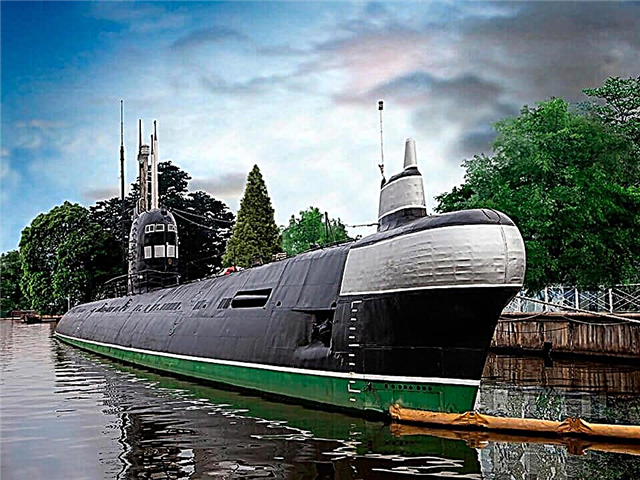
This unique museum ship has every right to be considered one of the most significant components of the museum complex. It attracts the attention of researchers for several reasons. Today, very few submarines of the pre-nuclear type have survived in the world, and the B-413 belongs to this type. In addition, it has been preserved in its authentic state - neither the hull, nor the interior, nor the superstructures, nor the mechanisms were damaged.
Visiting this floating facility takes place in an interactive format - guests are invited to become members of the crew, and therefore the number of people is strictly regulated - 15. In the course of a kind of game, they will have to face tasks that regularly stand in the way of real sailors of submarines. The price of an adult ticket (with a guided tour) is 300 rubles. In this case, a free visit to the "Water Cube" will be included as a gift. The submarine is open to the public from 10:00 to 18:00 on all days except Tuesday.
Pavilion of the Naval Center "Water Cube"
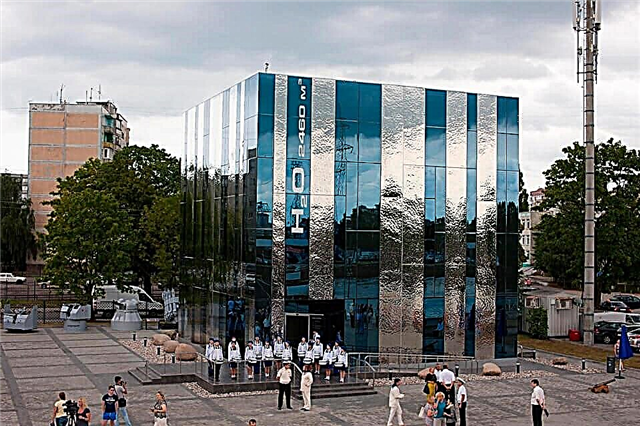
The name of this component of the World Ocean Museum is rather unusual. This pavilion is the first fully completed part of the Ocean Planet Center project, which is still under construction. This museum building is made in the form of a cube with mirrored walls, which fully reflects its name.
Inside this highly futuristic building, there are exhibition halls and a small café. Now the exposition "War at Sea" is located here, namely that part of it, which examines in detail the naval battles of the First World War. The Water Cube is open to guests from 10:00 to 18:00. The days off are Monday and Tuesday.
Exhibition buildings "Morskoy Königsberg-Kaliningrad" and "Pakhaus"
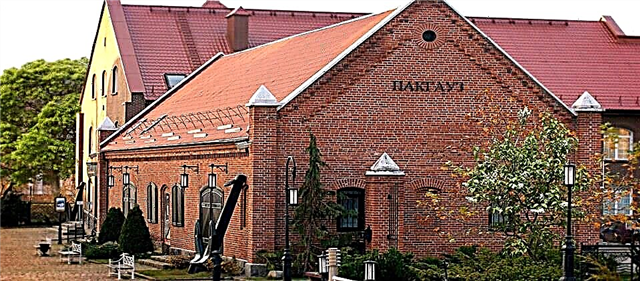
These exhibition buildings are located on the embankment of Peter the Great. They most clearly show that the modern buildings of the museum are mostly located on the territory of the old port. And the collections of the exhibition buildings themselves are housed in warehouses built in the nineteenth century. "Pakgauz" is one of the most modern exhibition halls, thanks to which many masters from abroad are happy to exhibit here.
Temporary exhibitions are held in the Morskoy Königsberg-Kaliningrad building, but everyone knows it as a place where you can see an old ship of the nineteenth century, whose restoration was finally completed. In this building you can get acquainted with the maritime history of the city. Next to the buildings, you can also see the so-called Kant's bench. True or not, today it is already difficult to say, but it is believed that the great philosopher loved to walk through the port and, sitting on a bench, watch the ships.
Both buildings are open from 10:00 to 18:00. Tuesday is a day off.
Amber Museum
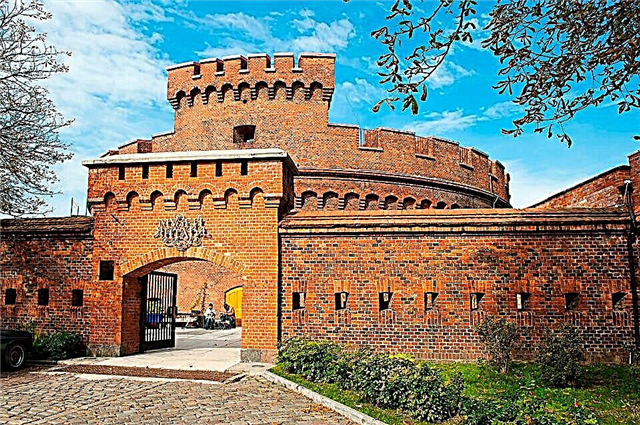
This is the only amber museum in Russia, which makes it undeniably interesting to visit. It occupies one of the fortress towers of the second half of the nineteenth century. The building is built in the neo-Gothic style and resembles a slightly flattened "round" standing on the shores of Lake Superior. The collections of the museum are amazing. They contain exhibits whose age is estimated at the fourth millennium BC. Samples of jewelry brought from Europe in the seventeenth century are of particular value to researchers. You are guaranteed to be interested in the exhibition of jewelry and household items made of amber collected in Japan, Germany, USA, France and other countries.
The largest "sun stone" in Russia, whose weight is almost 5 kilograms, is also kept here.Every year the museum hosts jewelery masters who come to the exhibition of works of authorship. The total cost of visiting all exhibitions of the museum will cost 430 rubles. From May to September the museum is open from 10:00 to 19:00, in other months it closes at 18:00. There are no days off.
Regional History and Art Museum
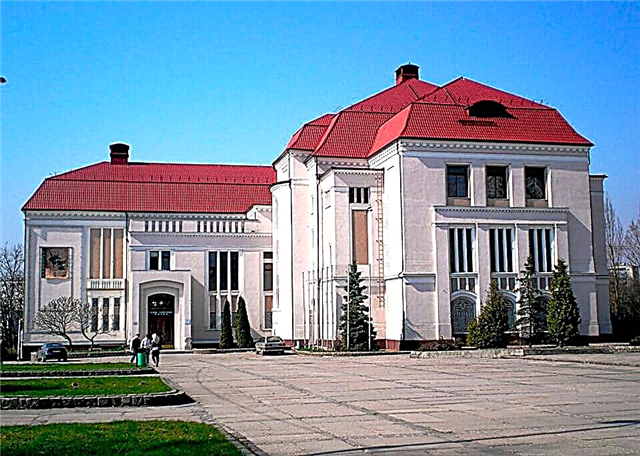
This museum is the same age as the Kaliningrad region itself. The filling of museum funds began after the end of the Second World War, so today it is his collection that is perhaps the richest in the region. Here you can see natural science, art and historical collections. The main expositions are located in the old building of Stadthalle, which literally means "City Hall" in German. Today the museum complex includes two more separate expositions - museums "Bunker" and "Fort No. 5".
Guests have the opportunity to purchase tickets to visit one of the museums or buy a ticket that guarantees the opportunity to visit all three. KOIHM is open from 10:00 to 18:00. The day off is Monday.
Museum "Bunker"
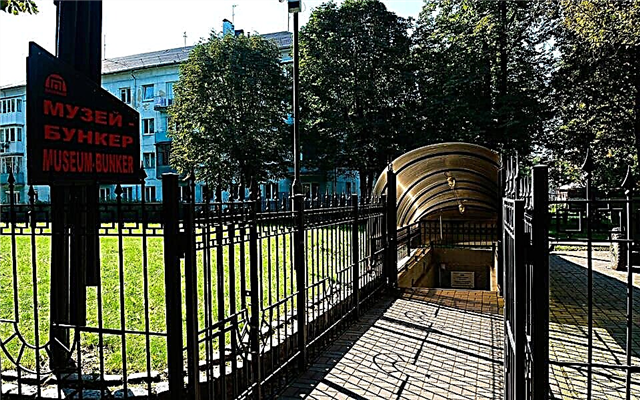
The museum fully lives up to its name. It is located in a former German reinforced concrete bomb shelter, which was commissioned almost at the very end of World War II. In March 1945, the headquarters of General Lyash was moved here, with which the main events in the bunker are associated. We are talking about the storming of Konigsberg by Russian troops. A significant part of the exposition is devoted to the negotiations that took place between representatives of the hostile commands during the assault.
You can find out about what happened to the Russian parliamentarians at the end of your visit to the museum. It is noteworthy that the museum itself was opened relatively long ago - back in the seventies. It was a joint initiative of Russian and German researchers. However, even today you can listen to the excursion both in Russian and in German. The museum is open daily from 10:00 to 18:00.
Museum "Fort No. 5"
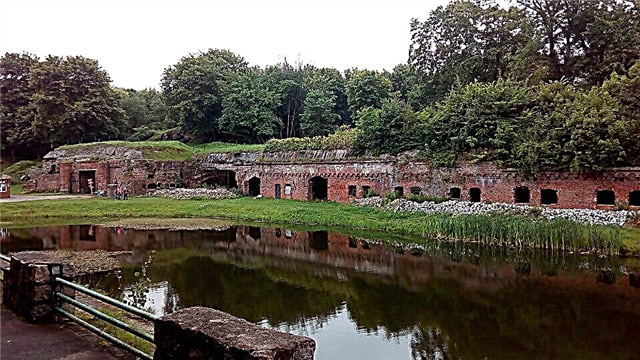
Fort No. 5 is still one of the most powerful structures in Kaliningrad. It was built at the end of the nineteenth century, during the struggle of King Frederick William III against the Napoleonic plague. Today Fort No. 5 is significant not only as an example of fortification thought, but also as an outstanding example of building art. It is one of twelve forts built along the city ring road.
This system of fortifications received a very poetic name - "Koenigsberg's Night Feather". Today, all areas of the fort are open to the public, including courtyards and shelters. There are also exhibitions devoted to the defense of the city, and the project "White Rose", which highlights the years of student resistance to the Hitler regime. From October to April, the museum is open from 10:00 to 19:00, in other months the opening hours are extended until 20:00. There are no days off.
Fort number 11 "Dönhoff"
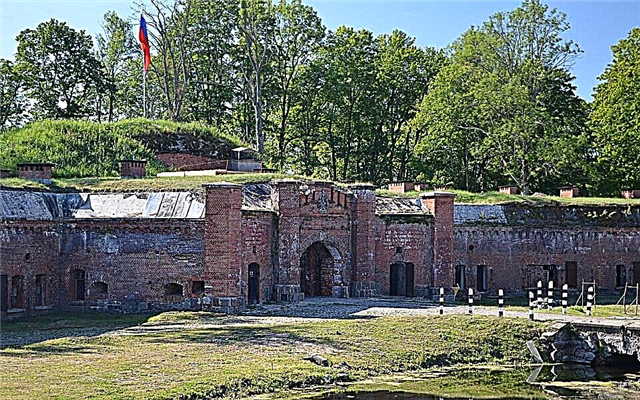
Of the twelve fortifications mentioned above, this fort is the best preserved. Despite almost two centuries of history and dozens of battles, the architecture of the fort practically did not suffer, however, no particularly large battles were fought on its territory. But it is for the better, because during the restoration it turned out that many of the old mechanisms are still working. For example, an elevator for lifting shells, which has only one analogue, and it is located in Holland. The casemates of the fort create a certain atmosphere, which can be fully felt within the framework of closed themed quests.
This option of visiting can be an excellent opportunity to spend, for example, a birthday. There are two basic scenarios, but guests can also create an individual program. The fort is open daily from 11:00 to 17:30. Tours run at fixed times starting at 11:00 and at 2 hour intervals. The last tour starts at 17:00.
Museum of the History of the Kaliningrad Railway
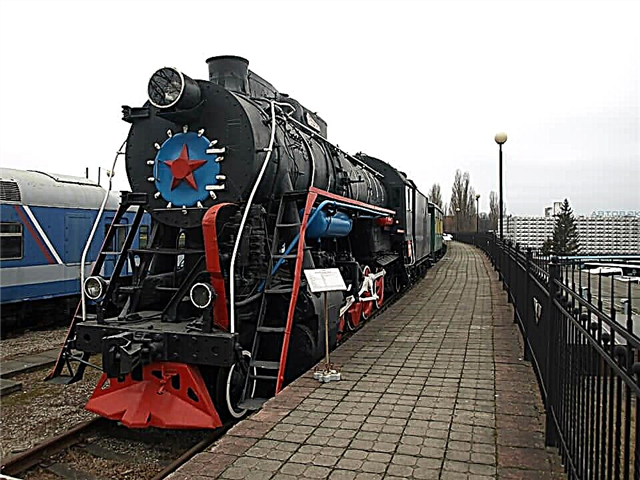
The territory of the museum is small, but this does not diminish its importance in the least. It is noteworthy that initially it was created on the initiative of the railway workers themselves, who understood the importance of preserving rare samples of railway cars. The museum is located in such a way that guests can see dozens of exhibits against the backdrop of the South Station.
Today, dozens of rarities stand on the high embankment, ranging from captured steam locomotives to passenger cars of the late nineteenth century. The museum is open from 08:00 to 16:00 on weekdays. On weekends, excursions are held for schoolchildren and groups, but only by individual agreement. The entrance to the museum is free.
Art Museum
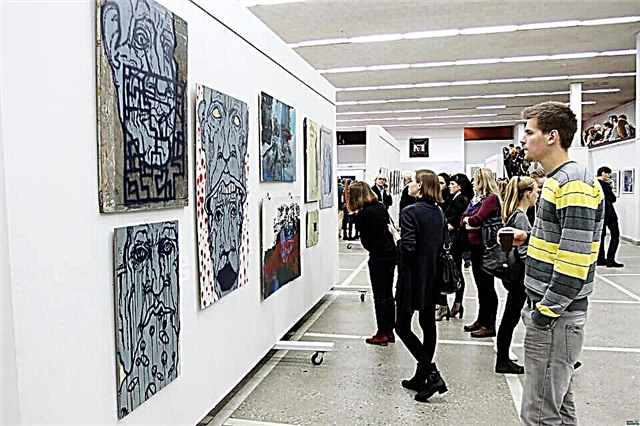
The Kaliningrad Museum of Fine Arts is quite young, but it has already earned the reputation of one of the most dynamically developing complexes. At the moment, it is the only institution in the region where canvases by Russian and foreign masters are exhibited in parallel. The building of the 19th century Trade Exchange was given to the museum's exposition. Here are mainly examples of official and alternative art of the second half of the last century.
In addition, there is a large collection of Russian ceramics, as well as an extensive exhibition dedicated to the fine arts of East Prussia. The museum is open from 10:00 to 19:00 on all days except Thursday and Friday (it is open from 10:00 to 21:00), as well as Monday (day off).
Kant Museum
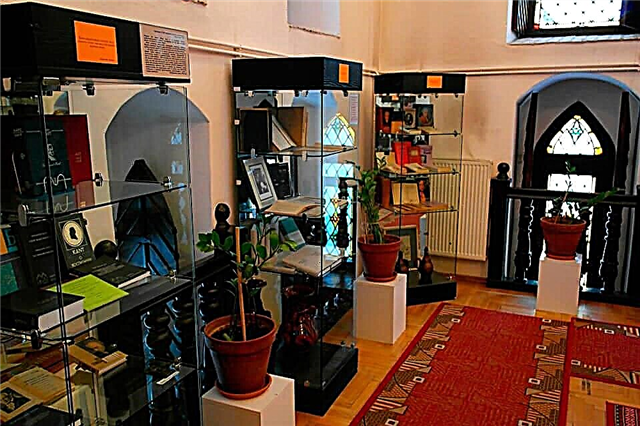
As strange as it may sound, this museum is a completely equal component of the Cathedral. Its expositions are varied and are associated mainly with either the personality of Immanuel Kant himself, or with the historical past of the city. The third floor is assigned to Kant and his rather colorful surroundings. Here you can find more than complete information about his works, scientific activities, as well as friends. A separate part of the exposition is devoted to his relationship with the then Russian Empire.
It is noteworthy that the grave of the great scientist and philosopher is also located on the territory of the cathedral. The second floor houses the numismatic collection and the famous Wallenrod Library. On the first floor, there are expositions dedicated to the Kneiphof island itself, or Kant's island. The museum is open all week from 10:00 to 18:00.
Museum-apartment ALTES HAUS
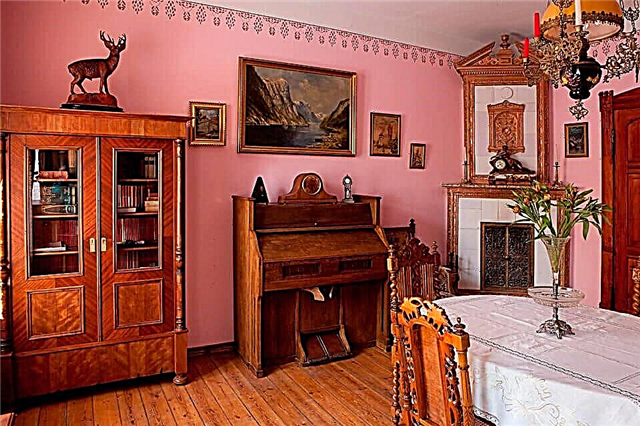
ALTES HAUS is located in an apartment where the Grossman family once lived. The head of the family was the typical owner of a grocery store in the Hufen district of the early twentieth century. The excursion includes immersion in the historical past of the Hufen and Amalienau districts, as well as acquaintance with the life of Konigsberg entrepreneurs of that time. From Herr Grossman there is a wonderful collection of shoes, clothes, as well as accessories for smoking and pipes.
Frau Grossman's boudoir is also perfectly preserved, along with all the toiletries, as well as the wardrobe of the hostess. During the tour, you will learn more about what life was like for the venerable Frauleins and Frau at the turn of the nineteenth and twentieth centuries. This unusual museum is open from Monday to Saturday. It opens at 11:00, 13:00 and 15:00.
Cathedral
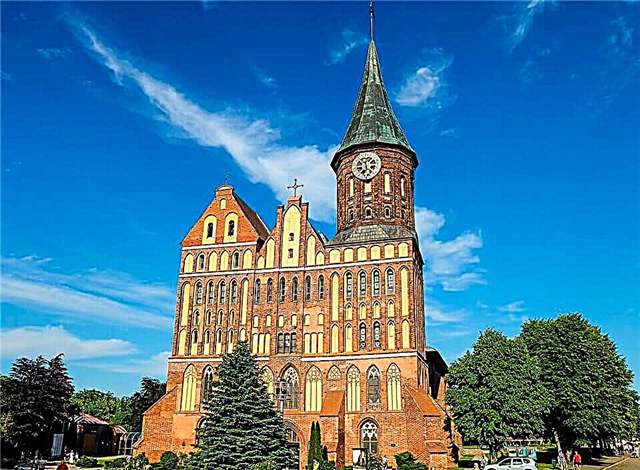
Today, the Kaliningrad Cathedral does not perform religious functions. Its complex includes the Immanuel Kant Museum, an academic concert hall and an organ complex, which is the largest in Russia. The cathedral has an extremely dramatic history, including its complete destruction by enemy aircraft during the Second World War and the subsequent resurrection from the ashes. This made the cathedral a real symbol of the city, and the presence of more than outstanding architecture turned it into an architectural dominant as well. The cathedral's real pride is its organs - small choral and large.
Small concerts are held daily and are always popular.Also, domestic and foreign masters are regularly invited to perform with full-fledged programs. The International Organ Competition, which traditionally causes great excitement, is also held here annually. For a list of upcoming performances and prices, please visit the website.
Sculpture Park Museum
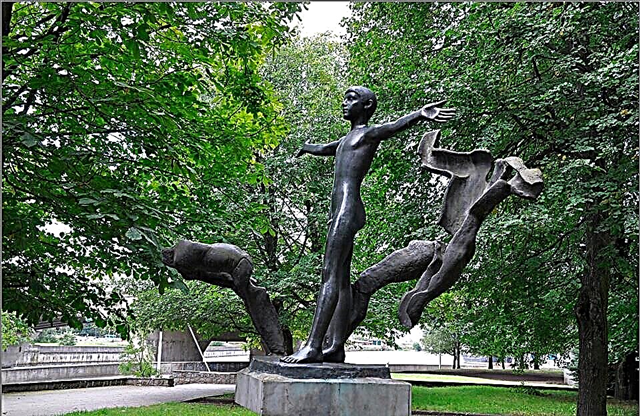
As the name suggests, the Sculpture Park is a real open-air park. The entrance is free. The park is laid out on the island of Kant around the Cathedral. There is a fairly diverse collection of contemporary art objects. The bulk of the exhibits appeared in the mid-eighties.
The park itself is a picturesque arboretum, the foundation of which was started back in the sixties, trying to fill the wastelands that appeared during the hostilities. Most of the sculptures in the park today are related to the theme of "Man and the World". Not all local exhibits were created by the hands of Russian craftsmen. But the sculptures came out invariably memorable. What is the grotesque monument to Chopin or the figure of Peter the Great?

